Nobody wants to watch from a distance when it comes to festive and rollicking events, right? Do you know how many unique festivals take place in Japan over the course of a year? The estimated number is – hold on, brace yourself – between 100,000 to 300,000! Wow!
This being the case, you would do well to know how to say congratulations in Japanese so that you won’t experience any awkward situations among Japanese people.
No worries, you’ll learn all Japanese congratulations in this blog post.
Let’s start with the most commonly used expression, おめでとう (omedetou). It literally means congratulations in the Japanese language, and all other variations meaning congratulations in Japanese include the word おめでとう (omedetou).
Page Contents
- The Origin Of The Japanese Word Omedetou
- Casual Ways To Say Congratulations In Japanese
- Formal Ways To Say Congratulations In Japanese
- Japanese Occasions That You Must Express Congratulations
- Example Sentences With ”Omedetou”
- Learn Japanese With Ling App!
The Origin Of The Japanese Word Omedetou
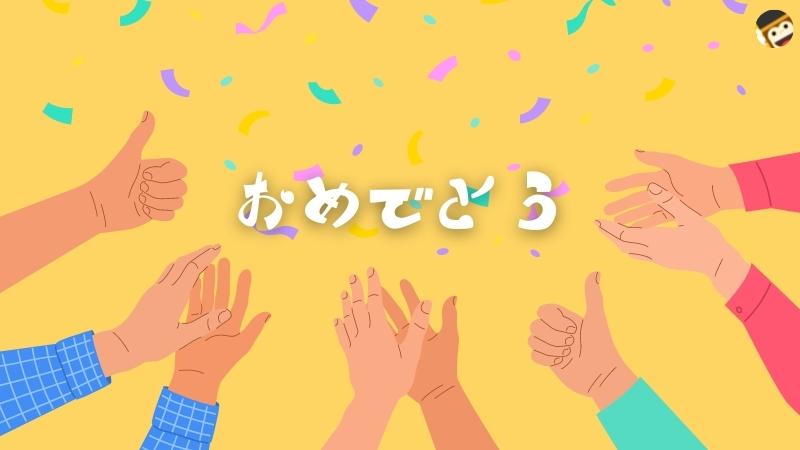
It is believed that the Japanese word おめでとう (omedetou) is derived from two different words: 愛でる (mederu) meaning ”to admire, to love” and 甚し (itashi) meaning ”Extremely, intensely”.
Based on this information, the literal meaning of おめでとう (omedetou) would express that ”one rejoicing with joy for a loved one thanks to their achievements”.
Casual Ways To Say Congratulations In Japanese
There are not many casual ways to say congratulations in Japanese. As a matter of fact, there is only one that I know, and it is the one we’ve just mentioned above.
I don’t know; maybe it is because of the high level of politeness and formality of Japanese society in daily life.
おめでとう (omedetou)
おめでとう (omedetou) is the quickest, easiest, and most standard way of wishing someone congratulations.
You can use it in any situation where you want to express your love and empathy for someone’s achievement or success. Remember to say this only to your inner circle of friends and family.
Formal Ways To Say Congratulations In Japanese

As you can guess, there are so many formal ways to say congratulations in Japanese that we can sort them out based on their level of formality.
おめでとう ご ざ い ます (omedetou gozaimasu)
This phrase is the polite form of おめでとう (omedetou). In most cases, when you add ご ざ い ます (gozaimasu) right after a Japanese word, it automatically turns into a formal phrase. Again, you can use it in any situation.
Japanese people are more likely to use this phrase rather than the casual one.
お祝い申し上げます (oiwai moushiagemasu)
This is a more formal phrase than the previous one. It also expresses congratulations to someone. However, お祝い申し上げます (oiwai moushiagemasu) is usually used in companies’ official emails or letters.
It is considered quite formal, so it is used in professional or formal business meetings other than in the textual form.
By the way, if you are looking for how to say cheers at a business event or party, you should check out our previous blog post about cheers in Japanese!
お慶び申し上げます (oyorokobi moushiageru)
While this phrase expresses feelings of happiness at the achievements, it is also used when answering a formal letter.
For example, a letter is sent to a freshly graduated student who signed a contract to get a position in a business; in that case, the company uses this expression to congratulate a win-win situation.
Japanese Occasions That You Must Express Congratulations
In Japanese culture, there are a lot of different situations that require sincere congratulations. Ranging from usual events like birthday parties to unique Japanese occasions like Coming Of Age Day and much more.
You should know what to say and where to say it, right?
Birthdays – 誕生日 (tanjōbi)

Sharing someone’s happiness by wishing them a happy birthday is priceless. It is a sign that you care for that person, and giving them even a small gift can make them feel loved and remembered.
誕生日 (tanjōbi) means birthday in Japanese, and 誕生日おめでとう (tanjōbi omedetō) means happy birthday in Japanese.
If you’d like to say it more politely, you can add gozaimasu at the end: お誕生日 おめでとう ご ざ い ます (otanjōbi omedetou gozaimasu).
Weddings – 結婚式 (kekkonshiki)

A wedding can be the most important moment of one’s life, and we want our family and friends to be with us to share our happiness and love. Showing up at a Japanese wedding and wishing the newly-wed couple congratulations will make their day!
結婚式 (kekkonshiki) means wedding in Japanese, so when someone gets married, you can say 結婚おめでとう (kekkon omedetou), meaning congratulations for getting married!
The politer way to say this is by adding gozaimasu at the end: ご結婚 おめでとう ご ざ い ます (gokekkon omedetō gozaimasu).
Graduations – 卒業 (sotsugyō)

Whether it is high school or university, graduations are worth celebrating. I can’t imagine a more proud moment than a graduation ceremony for a student that has studied for years.
卒業 (sotsugyō) means graduation in Japanese, so when someone is newly graduated, you can say 卒業おめでとう (sotsugyō omedetō), meaning congratulations for graduating!
To sound politer just add gozaimasu at the end ご卒業 おめでとう ご ざ い ます (gosotsugyō omedetō gozaimasu).
Entrance Ceremony – 入学式 (nyūgakushiki)
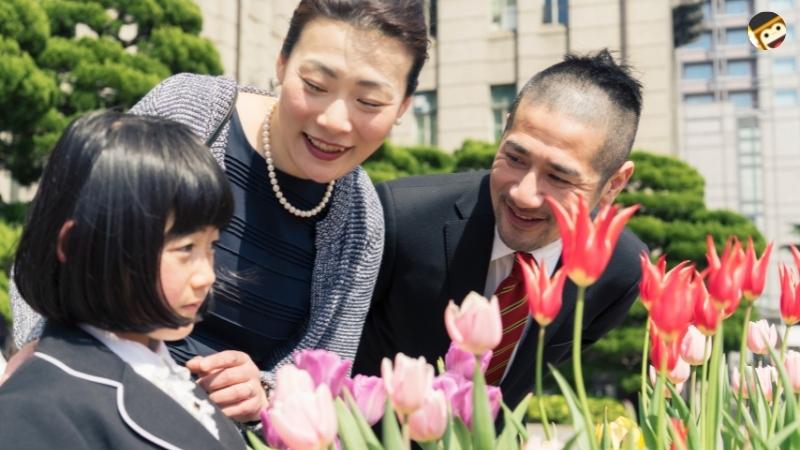
To be accepted to a school is as important as graduation, and new students are welcomed with an entrance ceremony in Japan. It is called 入学式 (nyūgakushiki).
So, when someone gets accepted by a university, you can say 入学おめでとう (nyūgaku omedetō), meaning congratulations on entering the school to show your support.
To sound politer, you can add gozaimasu at the end ご入学 おめでとう ご ざ い ます (gonyūgaku omedetō gozaimasu).
The Coming Of Age Day – 成人の日 (seijin no hi)
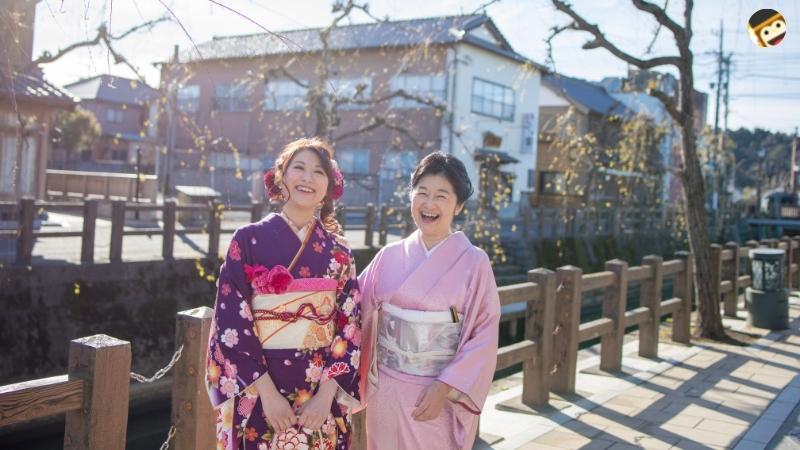
Japan has a special day named The Coming Of Age Day, and it is also a national holiday. It is celebrated on the second Monday of January annually.
On this day, a special ceremony takes place at the middle schools in Japan, and young people who have just become an adult (20 years old) or will become so within that year reunite in a formal event.
It is a unique Japanese occasion where family members congratulate their son/daughter for becoming an adult legally. Friends can also congratulate each other.
Valentine’s Day – バレンタインデー (barentain dē)

February 14th, Valentine’s Day, is the most awaited day by couples each year. It is the perfect day to surprise your partner with a fantastic gift and show how deep your love is for them.
Learning Japanese phrases just because it is their native language sounds like a pretty romantic idea; what do you say? 😉
To celebrate your Japanese partner’s Valentine’s Day, you should say ハッピーバレンタインデー (happii-barentainde), meaning Happy Valentine’s Day.
Labor Thanksgiving Day – 勤労感謝の日 (Roudou kansha no hi)
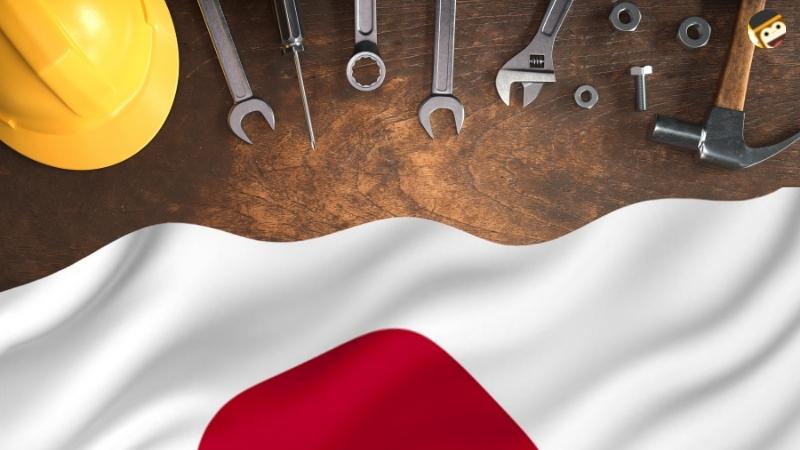
November 23rd is a national holiday to appreciate the efforts of working people in Japan. Japanese people usually celebrate this day by going out with their co-workers and drinking together.
New Year – 年末年始 (nenmatsu nenshi)

New Year’s Eve and Christmas are the last holidays people celebrate in a year. There is always a fantastic atmosphere in the streets of Tokyo with all the illuminating decorations and firework shows.
To celebrate the New Year in Japanese, you can say 明けまして おめでとう ご ざ い ます (Akemashite omedetō gozaimasu), meaning Happy New Year!
To celebrate Christmas, you can say メリークリスマス (merī kurisumasu) which is very similar to Merry Christmas in English.
Example Sentences With ”Omedetou”
Learn Japanese With Ling App!
If you want to learn Japanese or any other 60+ languages offered in the app, then you should try the Ling App!
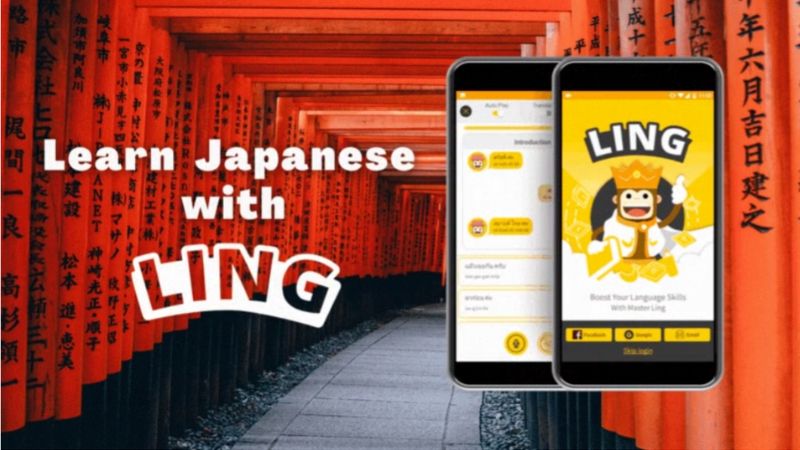
Ling is a language learning app designed to help all learners. With so many engaging activities to choose from, such as writing and listening exercises, mini-games, quick quizzes, and an AI chatbot to converse with, the Ling App is the perfect all-in-one language learning resource.
Also, don’t forget to visit our Japanese blog weekly to learn more about the Japanese language and culture!
This app has everything you need to master all four language skills. You can try the app out for free today by downloading it from the App Store or Play Store.
Start learning Japanese or another new language by downloading the Ling App today!

























